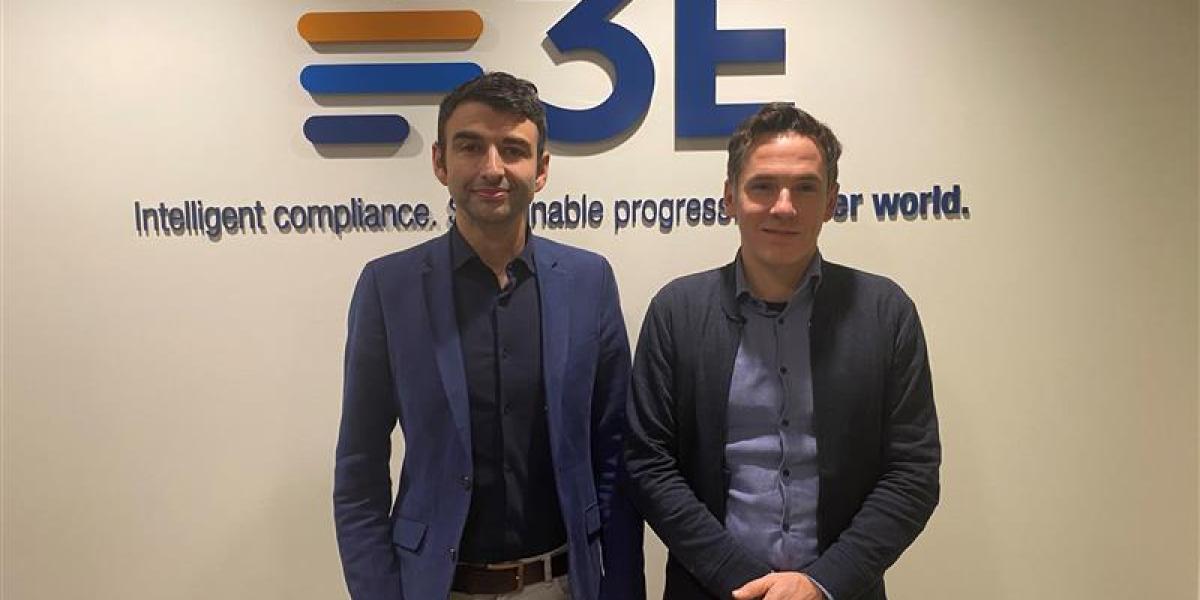You are here

(Editor's Note: 3E is expanding news coverage to provide customers with insights into topics that enable a safer, more sustainable world by protecting people, safeguarding products and helping business grow. Q&A features our reporters' exclusive 1:1 interviews with regulatory and industry influencers.)
Increased regulatory scrutiny has been a driver of demand for more comprehensive and targeted regulatory research and compliance solutions.
3E’s November 16, 2023, acquisition of Chemycal, a global regulatory monitoring company and news aggregator, is expected to help spur additional innovation and market-leading insights.
Chemycal, founded in 2015 by CEO Lorenzo Zullo and CTO Luca Mohammadi, is a global technology-driven regulatory monitoring service with domain expertise that aggregates chemical and product compliance data.
Zullo and Mohammadi are now directors of product management for news and research at 3E. They will help integrate Chemycal’s portfolio of more than 35,000 news summaries and 150,000 substances and materials into 3E’s slate of regulatory tracking and compliance tools.
“Their wealth of experience in the environmental, health & safety domain adds another layer to the already rich tapestry of talent at 3E. The synergy between 3E and Chemycal propels us forward, hastening our journey towards providing world-class news & regulatory aggregation and decision support solutions,” said Alan Johnson, 3E’s managing director of chemical and workplace safety.
Can you share a little bit about your background?
Zullo: In 2006 I started to work for the European Tire and Rubber Association in Brussels. My role there was to monitor regulatory developments impacting the use of substances in the production of tires and general rubber products. This [industry] uses more than 1,000 chemicals to produce their products, and it was quite challenging to keep track of all of that. So that's where I got the idea to develop something that could support monitoring and predicting regulatory developments worldwide, especially considering that that type of monitoring was an emerging requirement across all industries. So, I got in contact with Luca, and in 2015, we opened Chemycal.
Looking at 2024 and beyond, what are the key themes that you're most interested in? What do you think is going to be most important to customers?
Zullo: There are thousands of different substances used on the market. And so, regulators around the world are continuously assessing potential risks to human health and the environment, imposing more and more legislative restrictions on their use. The scope of such risk assessment is getting broader, taking into account their entire life cycle, from manufacturing to integration into products, their final disposal, as well as potential implications for recycling.
Within 3E, I will also provide support on supply chain solutions, including digital product passports.This is a very important area of activities that are triggered by the increasing need to enhance transparency and supply chain communication.
What are the biggest opportunities and/or biggest challenges facing those who are following the chemical regulatory landscape?
Zullo: One big challenge is to keep track of regulatory developments and ensure that your products are in compliance with whatever applicable regulations are in the markets you have placed your product. You need to collect information from your supplier and ensure that you have full visibility or information about your product or what you put in your product. The biggest opportunity is that if you're able to anticipate that and make your product in compliance, even before it's required by the regulation, that's an added value for your product. You can promote it and say, ‘look, there are these other two substances we don't use them.’ It's a challenge that can be converted into opportunity if you're able to anticipate that. And that's the area where we'll work in.
What is your vision for integrating with 3E? How will those resources enhance or augment 3E’s product suite?
Zullo: One important element that was considered in our company is our capacity to monitor and collect information around the world. We monitor regulatory agencies and their risk assessment activities. We look at the NGOs, because they play an important role — they're the ones pushing governments to regulate certain products. We monitor industry proactive and voluntary decisions to stop using certain substances, as well as research on safer chemical solutions. The idea is to capture emerging trends and support companies to develop safer products.
Can you describe how Chemycal’s tools can be beneficial to a wide variety of customers at various stages of preparedness for the current regulatory environment?
Mohammadi: Within some organizations, many people are not necessarily trained in [regulatory compliance]. Maybe they are in product development, or sales and they need to understand how they can distribute in new markets and what the requirements are. [We can help] them to digest heavy and complex regulatory topics in a simple way. Small and medium enterprises which don't have [advanced] regulatory capabilities [might] like to outsource that support. That is where technology such as large language models and AI chatbots, could play a role.
Analysis
• 3E and Chemycal are aligned in purpose and scope. The acquisition will expand 3E’s growing news and research capabilities.
• The demand for more efficient analysis and compliance solutions has grown along with heightened regulatory pressures.
• Chemycal’s content aggregation and chemical library will help 3E customers make more informed decisions throughout the lifecycle of their products and supply chains.
About the author: Stefan Modrich is a Washington, D.C.-based reporter for 3E. He covers the latest developments in environmental health and safety policy and regulation. Modrich previously wrote for S&P Global Market Intelligence, The Arizona Republic and Chicago Tribune. He is an alumnus of Arizona State University and the University of Zagreb.

 Top
Top